Roland Yeomans's Blog, page 122
February 19, 2017
I HATE MARDI GRAS
 Blasphemous words here in South West Louisiana for sure!
Blasphemous words here in South West Louisiana for sure!
Billed as the biggest free party on Earth, Mardi Gras is known worldwide.
 Colorful costumes. Spectacular parades. Elegant pageants. Masked balls.
Colorful costumes. Spectacular parades. Elegant pageants. Masked balls. People dancing in the streets to rhythmic, intoxicating music.
All with an air of carefree abandon. As the music reverberates, alcohol flows.
Wildly elaborate floats glide down the street, with frenzied masqueraders onboard.
Crowds of onlookers shout encouragement.
 This may come as a surprise, but Mardi Gras long predates Christianity.
This may come as a surprise, but Mardi Gras long predates Christianity. The earliest record comes from ancient times,
when tribes celebrated a fertility festival that welcomed the arrival of spring, a time of renewal of life.
The Romans called this pagan festival Lupercalia in honor of “Lupercus,” the Roman god of fertility.
Lupercalia was a drunken orgy of merrymaking
held each February in Rome, after which participants fasted for 40 days.
 Am I a party-pooper?
Am I a party-pooper?
No, I am a rare blood courier,
and I see the bloody toll the partying and alcohol-fueled driving and anger takes on my community.
Countless times today I was delayed and detoured on stat runs
to make way for the parades and for drunken people staggering to line up hours in advance of the parades.
When a patient is bleeding to death,
and a drunken woman staggers off the sidewalk directly in my van's path, I sigh.
The parades all seem to be routed directly in front of the hospitals.
Waiting for a traffic light to change,
I watched the crowds on the sidewalk as a grandmother bumped and ground like ...
an exotic dancer.
I was impressed with her limberness,
saddened by her two young, perplexed grandsons watching her, a bottle held tightly in her fist.
 Laissez le bon temps roulez!
Laissez le bon temps roulez! Roughly translated, it means: “let the good times rule.”
The French saying comes alive during Mardi Gras.
Surely, Mardi Gras must be good for the economy, right?
Tell that to the short-staffed nurses
(since many of their co-workers call in sick with the Mardi Gras Flu)
as they struggle in the E.R.'s and the I.C.U's dealing with the aftermath of those good times.
The jobs that support Mardi Gras in particular
and tourism in general tend to be service industry positions that oftentimes do not pay high wages.
In fact, frequently the wages are so low
that employees have to work multiple jobs to keep the lights on and the cupboards from going bare.
My supervisor long since stopped taking his young daughters to the parades
since one was knocked down to the sidewalk by an adult lunging to catch cheap beads --
and his other daughter had her ankle mangled by a stomping foot of a drunken reveler.
Mardi Gras has become a sad term to me.
Published on February 19, 2017 19:12
February 15, 2017
WEP_WHERE DO THE WORDS GO? Back of the Drawer Flash Fiction

http://writeeditpublishnow.blogspot.com/
Rats!
For the first time in WEP history, I missed an entry.
But I do not enter to win but to honor my friend, Denise Covey.
So in that spirit here is my entry:
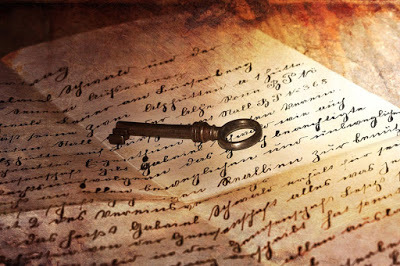
Where do the words go?
The words we should have said, the words that lodged deep in our throat because our heart was in it.
I am Lucanus.
Once I stopped at a stable upon hearing the cries of a young girl giving birth.
I was called a physician, though over the centuries I learned how little I deserved the title.
I helped as best I could at the time. I was forty-five. Since then I have stayed looking the same.
Is this punishment or reward for my inept attempts to help? I have never decided.
None still live who could say.
Like a ghost through a wall, I pass in and out of so many human lives, leaving a piece of my soul behind.
I have become a coward.
It tears at me to see those I care about slowly wither into caricatures. I leave them when they start to age and begin to look at me strangely.
Rachel had been so difficult to leave – she of the smoky soul and the hearth-fire eyes.
Now, I sat at her Victorian desk with the rolled cover and many drawers. It took years for the lawyers to find me, telling me I was the executor of her will.
The taxes were long overdue. I paid them.
Anthony Trask, the senior partner of the law firm that finally found me, glared down his fine patrician nose at me.
“Rachel was a wood-fire spirit, sir. She spoke often of you with such loss, I cringe to remember the sound of those words. She wrote you a note should you ever care enough to return. It is the only drawer that is locked, the second down to your left. Here is the key.”
He stood over me much like a vulture or perhaps just a man who thought his friend deserved better.
I took the key and opened the drawer. It was empty but for one time-stained page. I read it:
“Any minute now
the words will replay themselves
within the mind’s ear;
the jester and the singer
fail at last,
juggler of hearts
and orphan of the crossroads
falter,
footing lost, voice broken,
embracing in the downward spinning
the clown takes up the cry,
falling farther,
catch the heart’s staccato,
slipping netless
into the mind’s tomb.”
The poem’s epilogue pierced my own heart: “I waited for you, my love. You never came back.”
Trask asked, “The estate and grounds are yours. What would you have me do with them?”
I thought of Rachel’s abandoned heart and said, “Make them an orphanage.”
Published on February 15, 2017 21:48
February 14, 2017
IWSG Anthology_Elizabeth Seckman Has the Answers!
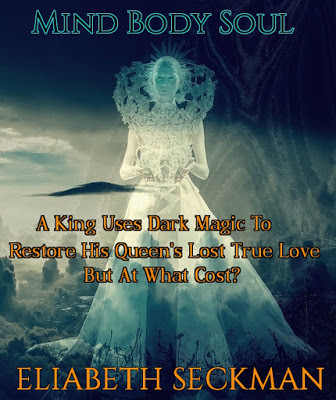
I asked Elizabeth:
What makes a person a lost soul?
What makes a person Legend? His deeds? His Loves? His death?
How do we lose our way?
How do we find our way back to ourselves?
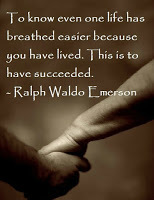 Roland, such a short question
Roland, such a short question but so very profound that people have spent lifetimes and volumes of words in answering questions such as these.
But I’m far more simplistic in nature, so I’ll only need a few minutes to explain my two-cent philosophy.
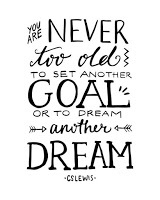 What makes a person a lost soul?
What makes a person a lost soul?
Not having direction or connections. People get lost when they have no goals or purpose.
I believe humans were created to well, create…and to love.
Whether it is painting the Mona Lisa or finger painting like a three-year-old, we are content when we are accomplishing.
And we all need goals- be it collecting coins or climbing mountains. And we also need to be needed.
Giving to others, either our families or even a pet goldfish, fulfills our need to be.
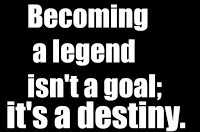 What makes a person a legend?
What makes a person a legend?
Doing something people remember…a feat so impressive it spans the decades and centuries.
How do we lose our way?
We forget our purpose in life.
Not having a purpose leads to emptiness and a feeling of disconnect with the world around us. That’s when we get lost.
How do we find our way back?
Find a purpose. Devote your energies to that purpose. And remember to share yourself with someone—even if it’s online or feline. [image error]
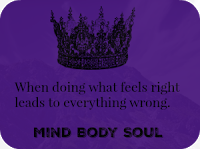 Heroes Lost IWSG Anthology
Heroes Lost IWSG Anthology
 Elizabeth is a wife, a mom, and a writer. She has four wonderful boys, one dusty house, and three published books to her credit. Feel free to check them out HERE! Erm, the books, not the kids or the house...though all things in life are negotiable ;)
Elizabeth is a wife, a mom, and a writer. She has four wonderful boys, one dusty house, and three published books to her credit. Feel free to check them out HERE! Erm, the books, not the kids or the house...though all things in life are negotiable ;)You can find her here - Blog // Facebook // Twitter // Website
Published on February 14, 2017 17:46
February 13, 2017
BLUE THIS VALENTINE'S DAY?

FEELING A BIT BITTER THIS VALENTINE'S DAY?
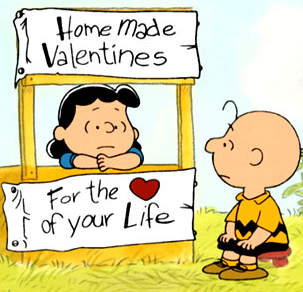
For many singles, instead of being a day for celebration it ends up bringing up feelings of self-doubt, loneliness or depression.
85% of all current relationships are unhappy according to the American Psychiatric Association. Gulp!
Imagine being in one of them this Valentine's Day?
At least if you are single, you have hope you will find that right person that will put you in the 15% category!
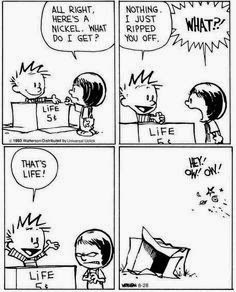
Remember That A Relationship Doesn't Define Who You Are
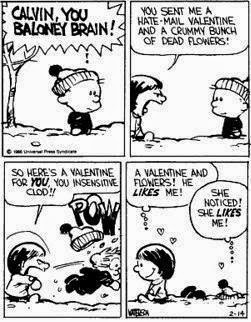
Just like when someone asks you what you do for a living, the same goes for your relationship status: Whatever your situation, it isn't the end-all explanation of who you are as a person.
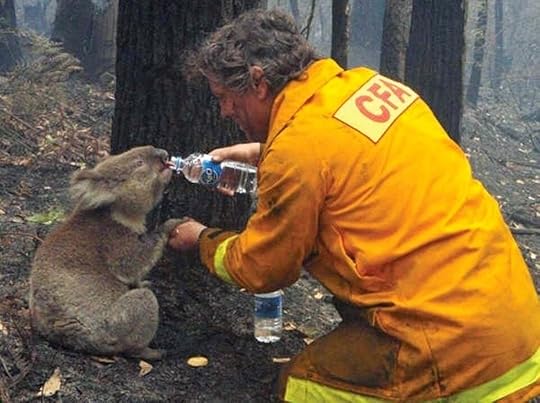 Love, like happiness, is found when your mind is focused on giving it to others.
Love, like happiness, is found when your mind is focused on giving it to others.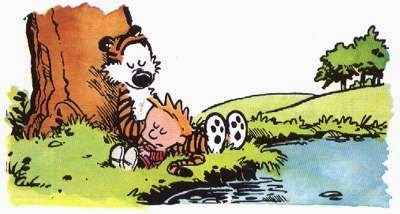
Valentine's is just another day.
Treat it as such.
It's NOT Saturday this year: so no date tonight is normal!

Another person cannotmake you happy.
Only you can make you happy.
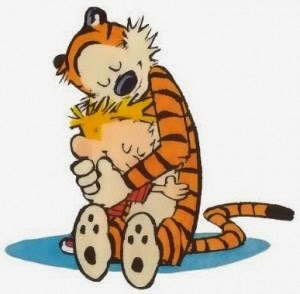
ONLY when you are whole within yourselfwill you attract another whole person.
Two half-people sadly do notmake a whole one:
Only two thirsty peopletrying to drink from leaking wells.

It is okay not to be okay.
Sometimes, people need permission to break.
And it is from that broken place that they are finally able to become whole again.
Above all,explore the worldwaiting for you to discover it.
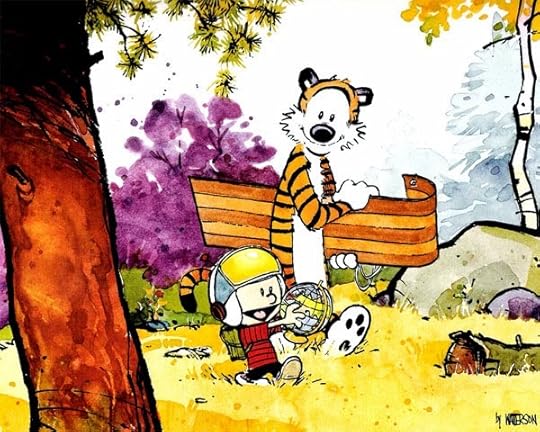
Don't forget to pre-order
the HERO LOST ANTHOLOGY!
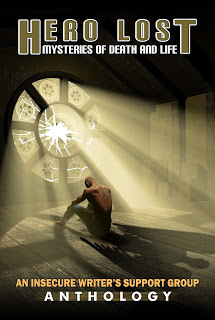 https://www.amazon.com/Hero-Lost-Mysteries-Death-Life/dp/1939844363
https://www.amazon.com/Hero-Lost-Mysteries-Death-Life/dp/1939844363
Published on February 13, 2017 22:18
February 12, 2017
IWSG ANTHOLOGY_ Meet and Greet by the ghost of Mark Twain
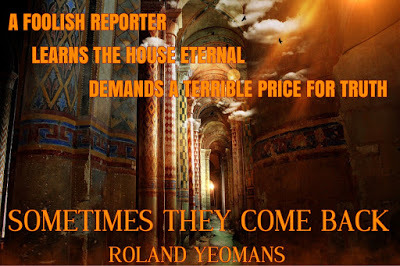 https://www.amazon.com/Hero-Lost-Mysteries-Death-Life/dp/1939844363
https://www.amazon.com/Hero-Lost-Mysteries-Death-Life/dp/1939844363
Ghost of Mark Twain here:
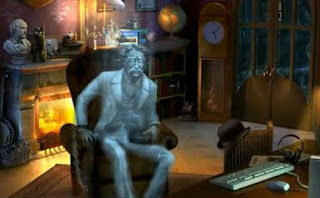
I got me some questions for you, Roland,
to sort of break the ice with those fellow authors you a'joining for that there collection of greatness.
Stop figeting so, boy.
Old Cthulhu there promises not to nibble on you much if just give me the right answers.
I know his tentacles are slimy! Just man up and speak up.
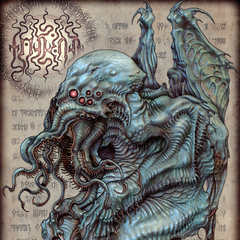
Where do you write?
I write in the kitchen where all the necessities are to be found: hot tea, cold coke, and dark chocolate!
Quick. Go to your writing space, sit down and look to your left. What is the first thing you see?
I see the stuffed German Shepherd puppy in his fluffy bed, his battery-operated side going up and down as if he were sleeping.
Little Buddy never makes a mess and relaxes me as I write!
-Favorite time to write?
No favorite time. As a harried rare blood courier, I write whenever I can squeeze some pages in. I try to write at least one page per sitting.
-Drink of choice while writing?
Hot tea. Captain Picard, Jayne of THE MENTALIST, and I love hot tea. :-)
-When writing , do you listen to music or do you need complete silence?
I listen to soundtracks mostly: Hans Zimmer, Howard Shore, John Williams, James Horner, etc. Like Candilynn Fite, I also listen to PANDORA.
-What was your inspiration for your latest manuscript and where did you find it?
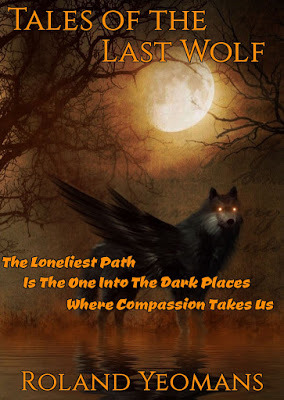 I bought a sampler of chocolates for a friend and thought how interesting it would be
I bought a sampler of chocolates for a friend and thought how interesting it would be
to publish a sampler of my haunted hero, Samuel McCord, all through his long, epic life.
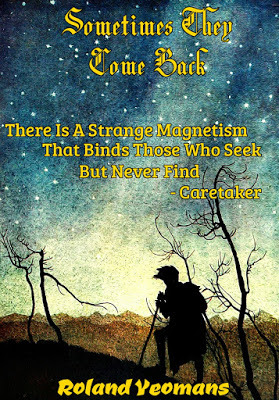
As for my short story in the anthology:
I have driven long, lonely rural roads as a blood courier and passed majestic, ancient mansions,
thinking what haunting stories might lurk within them.
-What's your most valuable writing tip?
The best tip I've found is from Ernest Hemingway (whose ghost often visits this blog - don't glare at me, Mark! You asked)
who said the key to success was NOT writing. It was RE-WRITING.
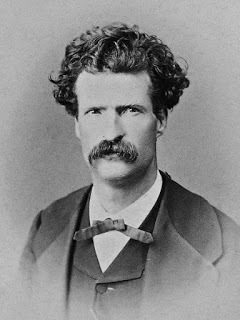
Be that way, Roland. Just for that you get my Quote of the Day:
"Don’t let your mind wander. It’s too little to be let out alone."
A little tune for the forgotten in this world --
Published on February 12, 2017 09:24
February 9, 2017
WHO SHOULD YOU WRITE TO?

Not FOR but TO
It is often touted that if you want to be published, you do not write for yourself but for an audience.
They say:
You only THINK you know yourself.
You cannot see the totality of yourself, of your essence.
In other words, you cannot see between your shoulder-blades or between your ears
(what really makes you tick or become absorbed in a story.)
So you only think you know what you like, what draws you to a story.
Write for an audience they say -- as if everyone drawn to THE HUNGER GAMES were the same.
If you go to BOOKSAMILLION and sit at the coffee tables
and watch the customers read their books, you will notice one thing:
The majority of them are not like you, or like one another.
They’re all wildly different.
And not just in the way they look and talk, but in what they choose to read ...
and why they made that choice in the first place.
SO WHAT IS THE ANSWER?
You do not write FOR but TO ...
to a single reader, a face sitting in front of you beside the campfire of the imagination.

HOW TO DO THAT?
You create a protagonist for your novel, don't you?
Create a reader --
someone you like, someone who "gets" you, someone who laughs at the same things you do.
MAKE IT PERSONAL
This reader does not need a name ... only a personality ... someone you can connect to.
She or he will be your test-audience.
Will she be sniffling along with you as you write this heart-wrenching scene?
Will she get the joke you just told or does your instinct say that pun will fall flat with her?
KEEPING ON POINT
This avatar reader will keep you in focus,
prevent you from meandering with self-aggrandizing prose that tickles your ego but bores your reader to tears.
Writing to keep this avatar reader's interest will sharpen your prose
to the extent that any reader picking up your book will buy into the reality of your tale.
The reader will not merely read your novel, she will enter it—and she won’t emerge until it’s over.
TRY IT
What have you to lose? And think of the interested readers you have to gain!
Published on February 09, 2017 19:33
February 8, 2017
WHY CONTRIBUTE TO AN ANTHOLOGY?
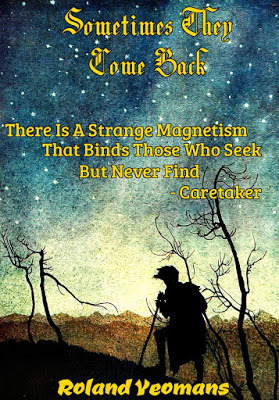 https://www.amazon.com/dp/B01NC0JNHI/
https://www.amazon.com/dp/B01NC0JNHI/I am one of 12 lucky authors to be selected for the HERO LOST ANTHOLOGY.
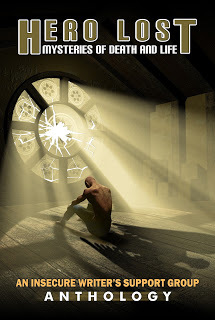
But why did I enter in the first place, and why should you do so in the future?
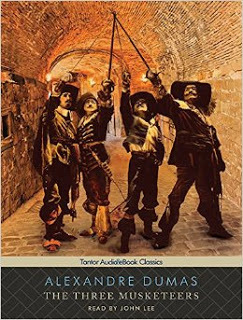
1.) YOU'RE IN GOOD COMPANY
Being selected into an anthology puts you in with good company.
The editors want to sell this book, and only choose those stories that they believe are winning.
You will get more exposure and up your "discoverability."
 2.) YOU CAN EXPLORE NEW TERRITORY
2.) YOU CAN EXPLORE NEW TERRITORY
The genre of the anthology not your usual field?
Great.
You get a chance to stretch those writing muscles and roam new realms of your imagination.
 3.) SOME OF THE SPOTLIGHT IS BETTER THAN NONE AT ALL
3.) SOME OF THE SPOTLIGHT IS BETTER THAN NONE AT ALL
Gaining publicity is never a bad thing, and a good anthology can get that for you.
It can even get new readers for your old books.
 4.) NETWORKING OPPORTUNITIES
4.) NETWORKING OPPORTUNITIES
While you’re building relationships with other contributors,
you’re also building relationships with valuable people in an industry
who can be a friendly face when you’re on your next project.
 5.) BUT WHAT HAVE YOU DONE LATELY?
5.) BUT WHAT HAVE YOU DONE LATELY?
When a publisher's editors are considering your next submission,
a recent book is always good to have on your resume.
The anthology markets you to both readers and potential publishers.
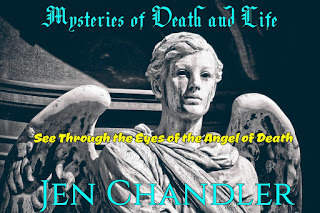 I hoped that helped you a bit and don't forget to visit the HERO LOST WEB PAGE!https://lostheroanthology.wordpress.com/https://lostheroanthology.wordpress.com/
I hoped that helped you a bit and don't forget to visit the HERO LOST WEB PAGE!https://lostheroanthology.wordpress.com/https://lostheroanthology.wordpress.com/
Published on February 08, 2017 21:41
February 7, 2017
LIFE HAS ALWAYS BEEN WEIRD
TAKE HADACOL
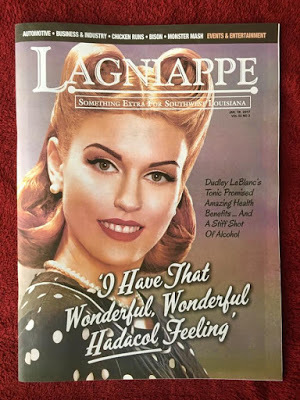 A lot of people in Louisiana in the late forties and early fifties did just that ...
A lot of people in Louisiana in the late forties and early fifties did just that ...
especially in dry parishes (counties).
You see it contained 12% alcohol (24 proof) ... but only as a preservative, mind you.
Hadacol was also a mixture of vitamins B1 and B2, iron, niacin, calcium, phosphorous, honey,
and diluted hydrochloric acid in that 12% alcohol.
The alcohol content wasn't all that high,
but the hydrochloric acid meant it was delivered through the body faster than it would be otherwise.
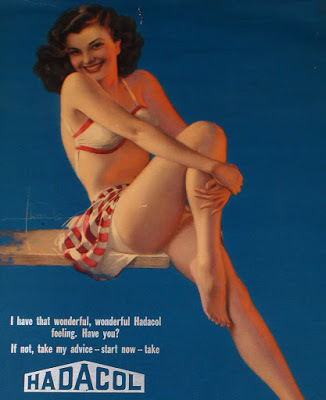
The mixture really made people feel better,
although it wasn't a cure for the many diseases it was advertised for:
high blood pressure, ulcers, strokes, asthma,and hay fever.
What made Hadacol a success was Dudley LeBlanc's advertising ingenuity.
He explored ways to promote his product that took the public by surprise and worked.
He kept supplies low in some pharmacies to create demand.
He paid people for their testimonies, which sometimes crossed the line to the outrageous:
"Two months ago I couldn't read nor write. I took four bottles of Hadacol, and now I'm teaching school."
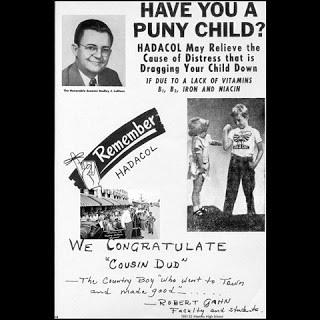
(He probably gave bottles of Hadacol to his students!)
Yes, the mastermind of Hadacol, Dudley LeBlanc, even recommended his tonic to children,
going so far as to make a comic book to promote his elixir to kids!
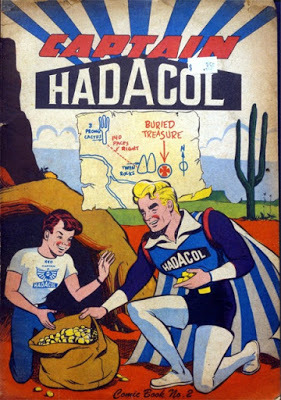
Indeed old Dudley was a scoundrel but this was Louisiana!
And he had his good side:
He put himself through college in Lafayette, Louisiana by running a clothes pressing business.
Then he put four brothers and two cousins through college as well.
LeBlanc sold shoes, tobacco, patent medicine, and funeral insurance.
He also ran a funeral home that benefited greatly from the insurance sales.
On his way to making millions,
LeBlanc served as state senator and in the Louisiana Public Service Commission.
He made several unsuccessful bids to become governor.
LeBlanc served as state senator for four non-consecutive terms between 1940 and his death in 1971.
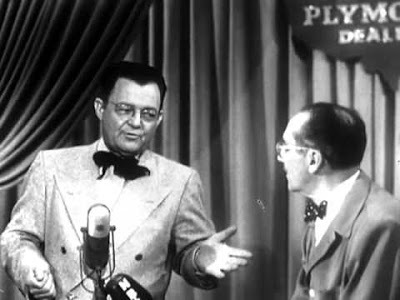
Why did Dudley name his tonic, Hadacol? As he told Groucho Marx on his game show:
"Well, I had to call it something!"
Groucho Marx you frown? How could Dudley afford his services?
LeBlanc made millions courtesy of the last of the traveling medicine shows:
At the time, Hadacol was the second biggest advertiser in the US, right after Coca-Cola!
In 1950, LeBlanc took the show on the road.
The Hadacol Caravan of 130 vehicles played one-night stands throughout the South.
Thousands of people paid admission with Hadacol box tops each night and enjoyed entertainment from
Carmen Miranda, Mickey Rooney, Bob Hope, Lucille Ball, George Burns and Gracie Allen, Roy Acuff, Minnie Pearl, and other big names.
The band played, chorus girls danced, circus acts performed, and LeBlanc sold millions of bottles of Hadacol.
The caravan then headed west and recruited the talents of Groucho Marx and Judy Garland.
In 1951, LeBlanc toured using a 17-car train called the Hadacol Special. The shows featured bicycle giveaways, beauty contests, and clowns selling Hadacol.
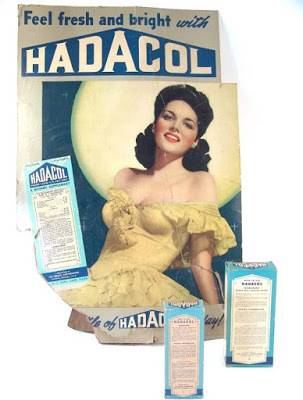
Jack Dempsey, Milton Berle, Jimmy Durante, and Cesar Romero joined the show, which played for a month straight in Los Angeles.
Hank Williams played the final act of the show and brought people to their feet every night.
By the end of the tour, the IRS and debtors were circling that train.
But Dudley, in true Louisiana politician form,
sold his company to an outside group who belatedly found out how deep in debt the company was.
The group that bought Hadacol was stunned to find how far in debt the company was,
and declared bankruptcy even before paying the entire $8 million selling price to LeBlanc.
Still, LeBlanc had the last laugh, as the company's debts were no longer his!
Published on February 07, 2017 12:50
February 6, 2017
VICTIM OF A SCAM
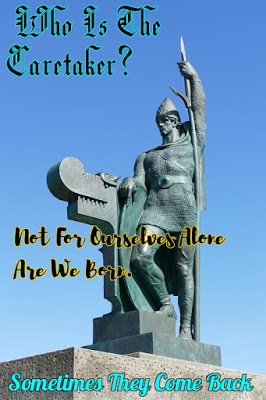 https://www.amazon.com/dp/B01NC0JNHI/
https://www.amazon.com/dp/B01NC0JNHI/Not just me
Many authors with their own audio books were scammed.
Some YouTube videos of many author's audio books.
Each video had the image of our audio book cover,
and the audio was from the sample audio posted at Audible.
Each YouTube video also had text that said to click on a link to "get your free audiobook."
The link led to audiobooks.com.
After a day of complaints and emails,
the people who did the videos now say they've corrected a "computer glitch."
The link they provide now goes directly to each book's Audible listing.
ACX doesn't seem to be involved in the videos and did say yesterday they would work with YouTube to take them down.
The claim that you can get a free audiobook is still on each video, which makes me wonder if this is one of those "click bait" deals where people make money per click. At least now the scam is sending business to the right place! If you want to go to my Audible Page and get one of my books for free or for $1.99 if you buy the Kindle editon, Go here: http://www.audible.com/search/ref=a_search_c7_1_srchPg?searchAuthor=Roland+Yeomans
Published on February 06, 2017 16:25
February 3, 2017
HOW JAMES PATTERSON LEARNED TO BECOME A BETTER WRITER
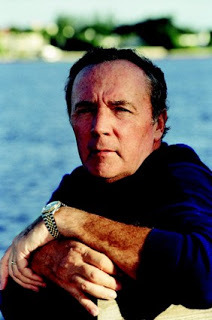 No, not by using ghost writers!
No, not by using ghost writers!
That is how he publishes a book a month!
Prolific is not necessarily progressive although it is profitable!
AUDIO BOOKS
The concept of Story began with the spoken word.
In front of flickering campfires, Tale-Spinners held their audiences enthralled by
the magic of adventures that spoke to their fears and hopes.
Once James Patterson moved to the country,
he learned the delights of listening to audio books as he drove from home to appointments in the city.
He even began to listen to his own books on audio
and discovered flaws even his eyes and his editor missed in the pacing and prose.
If even James Patterson could grow by listening to audio books, how much more could we?
SO WHY DOES JAMES PATTERSON SAY WE NEED TO LISTEN TO AUDIO BOOKS?
1) MORE THAN WORDS
There is a cadence to good writing. You pick that up listening to audiobooks.
Over time, that extra knowledge will bleed into your own writing.
For example, it is truly annoying when every line of dialog has a "he said" or "she said" after it.
It's true these are often 'invisible' in printed form,
but a chain of them can really bog down rapid-fire dialogue.
2.) WRITERS NEED TO READ
If you are like me, free time to pick up a print book and read is getting harder and harder to find.
We all drive, do housework, do fitness workouts, or eat lunch.
If I've got a road trip to make, I may manage an entire book.
Listening to audiobooks helps me experience more literature than I would otherwise have time to take in.
3.) YOU CANNOT SKIM
You've trained yourself over the years to skip the "boring bits",
to the point where you may not even realize you're doing it anymore, or why.
And, this may be affecting your own writing.
With an audiobook you're forced to hang on every word the author wrote.
As a result, you'll gain newfound appreciation for the words themselves.
4.) YOU WILL LEARN PACING BY HEARING IT DONE WELL and BADLY
To learn about story pacing, you need to read the whole book. Even those blocks of narrative and that looong stretch of backstory!
Hearing the whole thing will give you a better feel for how other authors pace their work
and how they use language to speed things up and also to slow them down.
5.) YOU WILL HEAR THE WORDS AS YOU WRITE THEM.
After a time of listening to audiobooks you will hear the words in your head now as you write.
Jarring bits that might have gotten by you will now stand out for you to edit them on the spot.
6.) YOU WILL HEAR HOW "VOICE" MAKES OR BREAK A BOOK
Every writer needs to develop their own unique voice. While you don't want to copy the voice of another writer,
it is a great teaching experience to hear how and why that author sounds like one of a kind.
7.) THE MAGIC OF LANGUAGE
The reality of writing is that your prose will benefit when you consider the sounds of the words you use.
The words that we use can be musical
but to hear the "notes" we need to actually hear the language.
Audiobooks allow you to do this.
Published on February 03, 2017 17:46



